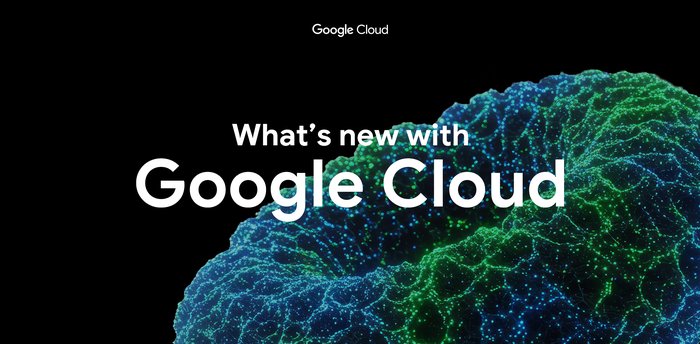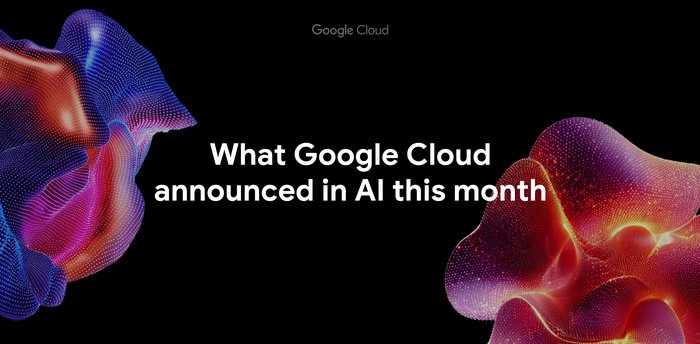Top storage and database sessions to check out at Next 2018
The Google Cloud Platform Team
Whatever your particular area of cloud interest, there will be a lot to learn at Google Cloud Next ‘18 (July 24-26 in San Francisco). When it comes to cloud storage and databases, you’ll find useful sessions that can help you better understand your options as you’re building the cloud infrastructure that will work best for your organization.
Here, we’ve chosen five not-to-miss sessions, where you’ll learn tips on migrating data to the cloud, understand types of cloud storage workloads and get a closer look at which database is best for storing and analyzing your company’s data. Wherever you are in your cloud journey, there’s likely a session you can use.
Top cloud storage sessions
First up, our top picks for those of you delving into cloud storage.From Blobs to Tables, Where to Store Your DataSpeakers: Dave Nettleton, Robert Saxby
What’s the best way to store all the data you’re creating and moving to the cloud? The answer depends on the industry, apps and users you’re supporting. Google Cloud Platform (GCP) offers many options for storing your data. The choices range from Cloud Storage (multi-regional, regional, nearline, coldline) through Persistent Disk to various database services (Cloud Datastore, Cloud SQL, Cloud Bigtable, Cloud Spanner) and data warehousing (BigQuery). In this session, you’ll learn about the products along with common application patterns that use data storage.
Why attend: With much to consider and many options available, this session is a great opportunity to examine which storage option fits your workloads.
Caching Made Easy, with Cloud Memorystore and RedisSpeaker: Gopal Ashok
In-memory database Redis has plenty of developer fans: It’s high-performance and highly available, making it an excellent choice for caching operations. Cloud Memorystore now includes a managed Redis service. In this session, you’ll hear about its new features. You’ll also learn how you can easily migrate applications using Redis to Cloud Memorystore with minimal changes.
Why attend: Are you building an application that needs sub-millisecond response? GCP provides fully managed service for the popular Redis in-memory datastore.
Google Cloud Storage - Best Practices for Storage Classes, Reliability, Performance and ScalabilitySpeakers: Geoff Noer, Michael Yu
Learn about common Google Cloud Storage workloads, such as content storage and serving, analytics/ML and data protection. Understand how to choose the best storage class, depending on what kind of data you have and what kind of workload you're supporting. You’ll also learn more about Multi-Regional, Regional, Nearline and Coldline storage.
Why attend: You’ll learn about ways to optimize Cloud Storage to the unique requirements of different storage use cases.
Top database sessions
Here are our top picks for database sessions to explore at Next ‘18.Optimizing Applications, Schemas, and Query Design on Cloud Spanner Speaker: Robert Kubis
Cloud Spanner was designed specifically for cloud infrastructure and scales easily to allow for efficient cloud growth. In this session, you’ll learn Cloud Spanner best practices, strategies for optimizing applications and workloads, and ways to improve performance and scalability. Through live demos, you’ll see real-time speed-ups of transactions, queries and overall performance. Additionally, this talk explores techniques for monitoring Cloud Spanner to identify performance bottlenecks. Come learn how to cut costs and maximize performance with Cloud Spanner.
Why attend: Cloud Spanner is a powerful product, but many users do not maximize its benefits. You’ll get an inside look at this session at getting the best performance and efficiency results out of this type of cloud database.
Optimizing performance on Cloud SQL for MySQLSpeakers: Stanley Feng, Theodore Tso, Brett Hesterberg
Database performance tuning can be challenging and time-consuming. In this session, you’ll get a look at the performance tuning our team has conducted in the last year to considerably improve Cloud SQL for MySQL. We’ll also highlight useful changes to the Linux kernel, EXT4 filesystem and Google's Persistent Disk storage layer to improve write performance. You'll come away knowing more about MySQL performance tuning, an underused EXT4 feature called “bigalloc” and how to let Cloud SQL handle mundane, yet necessary, tasks so you can focus on developing your next great app.
Why attend: When GCP provides fully managed services for databases, we put lots of innovations under the hood, so that your database runs in the most optimal way. Come and learn about Google’s secret sauce that lets you optimize Cloud SQL performance.
Check out the full list of Next sessions, and join your peers at the show by registering here.



